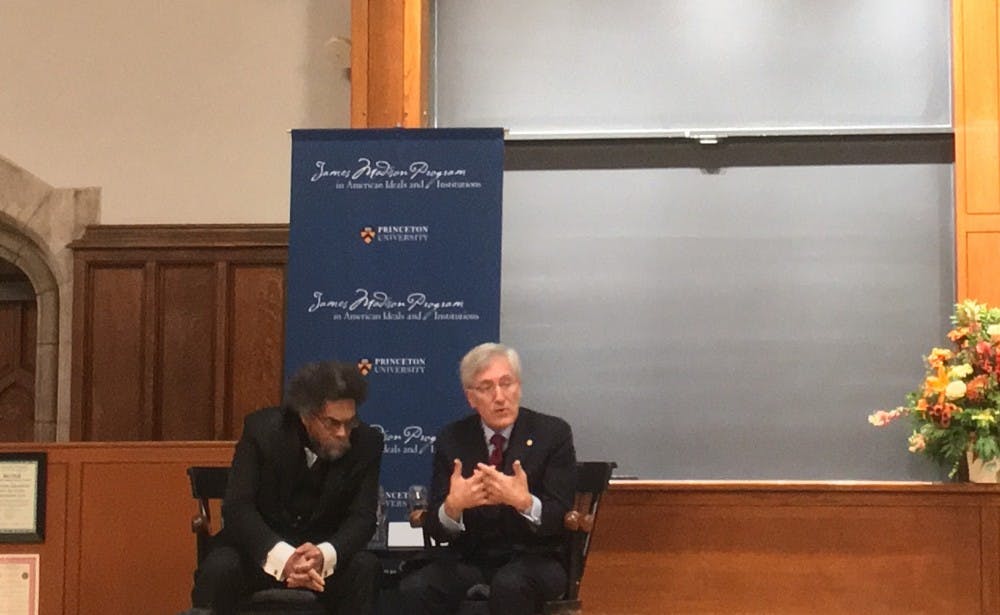Two renowned University-affiliated academics from opposite ends of the political spectrum came together in a talk to agree on what they see as the fundamental role of academia — truth-seeking and open inquiry. McCormick Professor of Jurisprudence Robert P. George and Class of 1943 University Professor of African American Studies, Emeritus Cornel West GS ’80 spoke at an event titled “The Spirit of Truth-Seeking” on Friday night.
The event took place during First-year Families Weekend and was sponsored by the James Madison Program as part of the University Humanities Council’s “Being Human” festival. The talk took place in McCosh Hall 50 on Oct. 11, at 7 p.m.
University President Christopher Eisgruber ’83 began the discussion with an introduction of the speakers and an opening statement in which he accentuated the value of truth-seeking at the University.
“Tonight’s discussion addresses a topic — truth-seeking — that resides at the heart of this university, and indeed, at the center of any research university worthy of the name,” said Eisgruber.
Eisgruber quoted James Peebles GS ’62, the Albert Einstein Professor Emeritus of Science and a recent co-recipient of the 2019 Nobel Prize in Physics.
“At his press conference on Tuesday, Professor Peebles said he hoped for many years that his theory was wrong,” stated Eisgruber. “He kept formulating alternative theories that might deepen our understanding of the cosmos by disproving the theory that eventually won him the Nobel Prize.”
“The spirit of truth-seeking is first a spirit of humility,” George emphasized at the beginning of the dialogue. “It’s a spirit that recognizes one’s own fallibility, that whatever one’s convictions, beliefs, or judgments, they are fallible.”
George affirmed some values that he believed to be essential for a research university.

“For universities to be true to their truth-seeking mission, it is critical that they understand and that they be strict in their adherence to academic integrity and academic freedom,” George asserted.
More important than the material benefits that a student can obtain with a degree from the University, according to George, is the “examined life” that can be offered to students.
“You have here the opportunity to consider the best that has been thought and said, to consider the best arguments on competing sides, and to go for the big questions,” George stated.
West highlighted that new students are becoming a part of the tradition of intellectual inquiry at the University.

“You are in for magnificent joy, not just pleasure,” West said to the first-year students. “But most importantly, you are here to be thoroughly unsettled.”
Continuing, West discussed what the concept of “learning” entails, morally and spiritually.
“Deep education is about what [George] and I talk about ... students come in to learn how to die,” said West. “Students come in to learn how to die in order to learn how to live!”
Reaffirming George’s point on one’s fallibility, West proclaimed the importance of self-examination.
“Nietzsche was right, it’s not just about having the courage of one’s conviction,” said West. “It’s the question of having the courage to attack one’s conviction.”








